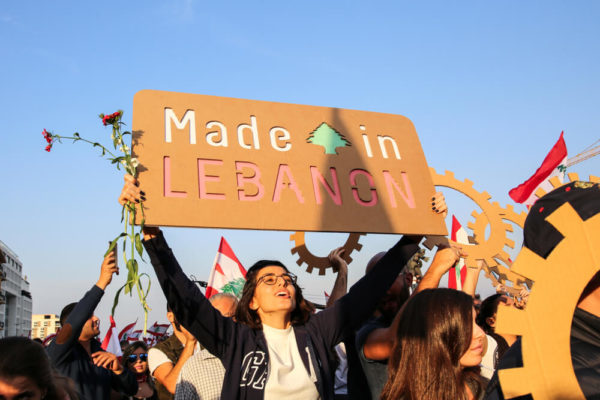The World Bank released a report on 23 November desperately calling on Lebanon to restructure its banking sector in a fairer, more “equitable” way, given the extreme devaluation of the country’s currency and the rapid economic decline it faces.
According to the report, the value of the Lebanese lira has plummeted by 145 percent in the first ten months of this year alone, resulting in a staggering, triple-digit inflation rate. Lebanon’s inflation rate is expected “to average 186 [percent] in 2022,” – one of the highest inflation rates in the world.
Quoting World Bank Regional Director Jean-Christophe Carret, Lebanon’s financial losses exceed “72 billion US dollars, equivalent to more than three times of (Lebanon’s) GDP in 2021.”
Carret also said that “a financial sector bailout is unviable” due to the lack of public funds, referring to the International Monetary Fund (IMF) bailout package being negotiated with the Lebanese state. The World Bank director instead suggested a “bail-in strategy” – which he said protects taxpayers and small depositors, and represents the only realistic economic model for Lebanon.
The report also estimates that the country’s GDP will continue to decline by another 5.4 percent this year if no solution is implemented.
Lebanon is facing the most severe economic crisis in its history, and depositors are being forced to resort to crimes of passion in order to access their savings. On the same day the report was released, three depositors desperately stormed three different banks across the country in the latest of a wave of bank heists that rocked the country in September.
These bank storming episodes have continued into recent months, with some involving the use of firearms.
Lebanon is also plagued by an energy crisis which has been further exacerbated by the conflict in Ukraine. While ongoing yet stalemated negotiations with the IMF continue, the World Bank has continued to obstruct a US-sponsored gas deal to import electricity into the country via Egypt, Jordan, and Syria.
Despite offering the deal itself, Washington has refused to provide sanctions waivers to the companies involved – purposefully prolonging the crisis in an abhorrent form of political pressure. Carret was quoted as claiming in August – in justification of the US reluctance – that Lebanon “is not serious about the deal.”
The cradle


Leave a Reply
You must be logged in to post a comment.